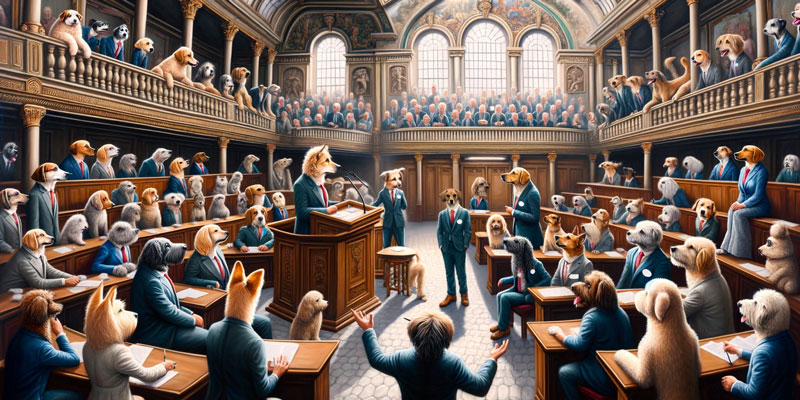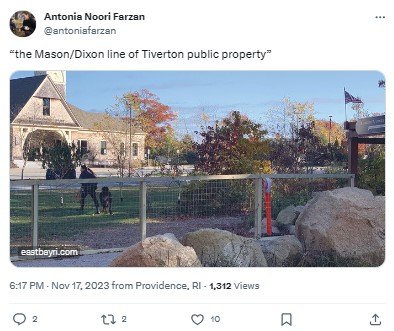
People just don’t want to find ways to live together, do they? (We should try objective government.)
Silly and local as it is, this is one of those stories that makes me despair for the future:

A few years ago, some folks petitioned for Tiverton to give some land next to the library to a group that wanted to put together a dog park. People using it are supposed to park across a lightly traveled road, but they’ve usually parked in the library parking lot. One day, they were having an event of some kind, and I actually had to drive into the library parking lot the wrong way because they were blocking access.
To address these problems, the library put up a fence that makes the dog park parking as convenient as the library lot to access the dog park. This is the controversy:
The fence, which has been on the library’s list of “to do” projects for more than a year, is intended to clearly show the dog park’s boundaries and its entrance point, and to encourage visitors to use parking spaces on the nearby town recreation property on Roosevelt Avenue, rather than library property, when using the park.
But not all appreciate it, and in online discussions have called it “spite fence,” a “vindictive” act, and more dramatically, “the Mason/Dixon line of Tiverton public property.”
Government is meant to help us find ways to live together, but some people will never be happy. Every accommodation they must make to others is an afront, and every assertion of contrary interests is an act of war. Frankly, they’re making a case for saying “no” much sooner. No donation of land for the dog park, no trouble for the library. Life is simple.
Perhaps a broader point of political philosophy can be derived from this example. If the library and the dog park were private parties, the neighbors could turn to the local government to arbitrate their interests according to objective rules. While the dog park faction might not like a fence in a certain place, if it is within the property and rights of the library faction to put one up, the government will recognize that fact, and everybody can move on.
In contrast, as more of our activities are processed through government — as with a government-run library or a donation of public land to a dog park — making your neighbor do what you want (or not do what you don’t want) becomes a political possibility. At the end of that road is dictatorship and social division.
